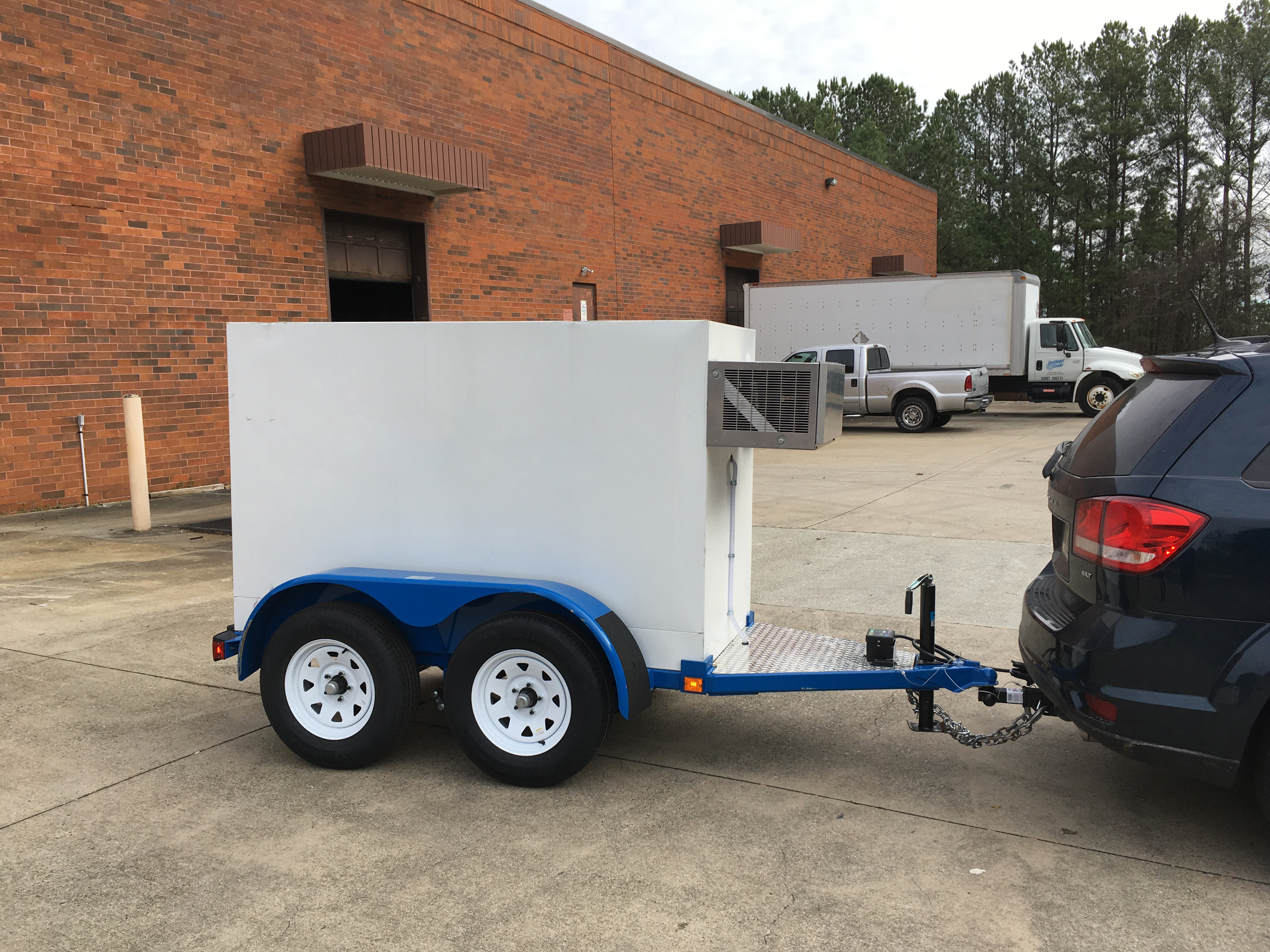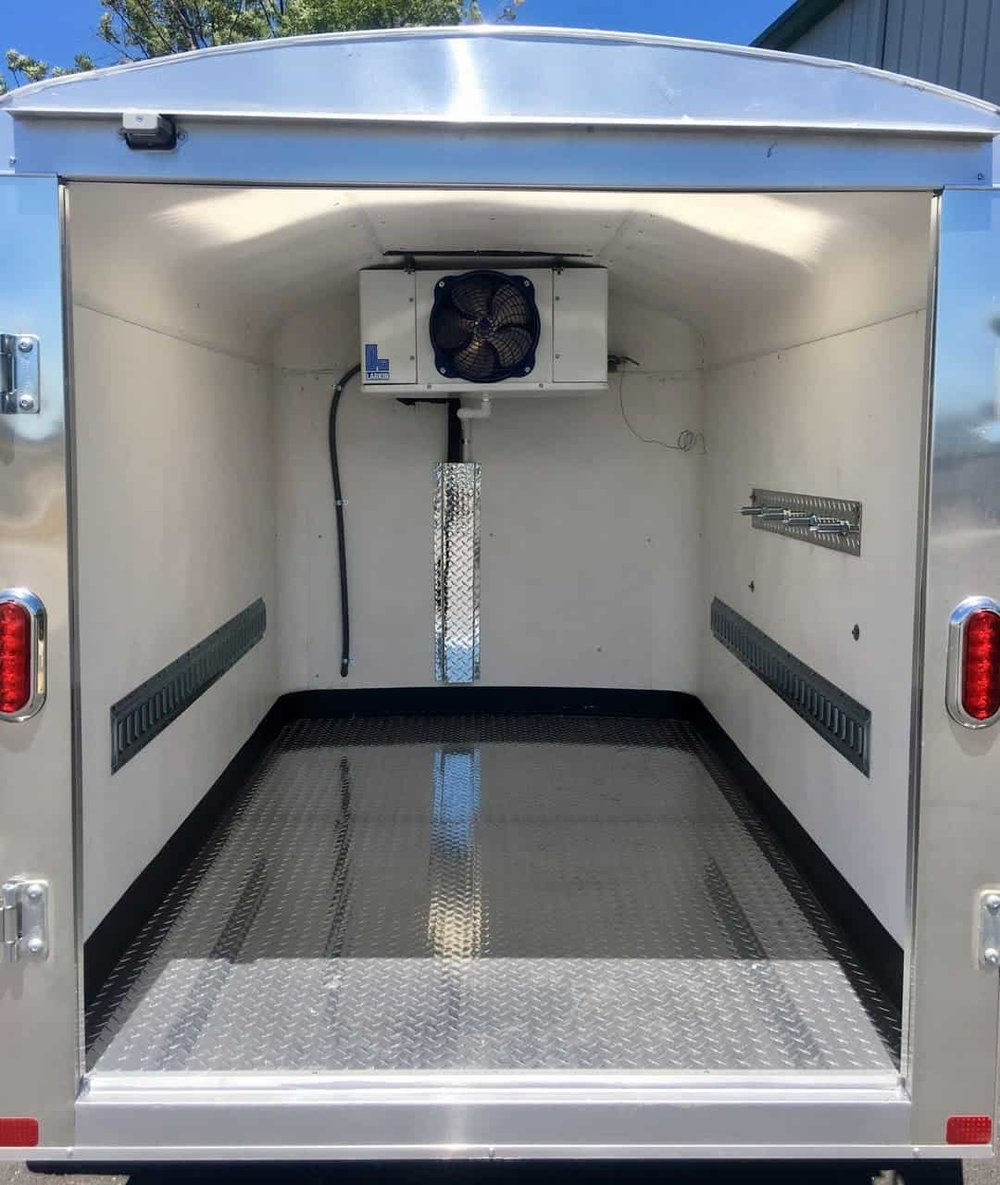Check out the Benefits of Small Refrigerated Trailer-Cooler Trailers
Check out the Benefits of Small Refrigerated Trailer-Cooler Trailers
Blog Article
The Ultimate Overview to Picking the most effective Cooled Trailers
When it concerns picking the perfect chilled trailer for your business requirements, various factors have to be meticulously taken into consideration to make sure ideal performance and performance. From the various sorts of refrigerated trailers readily available to the crucial functions such as size, temperature level control, and power efficiency, each facet plays a critical duty in identifying the finest fit for your details needs. Furthermore, maintenance and solution ideas are important to prolonging the life-span of your chilled trailer. By checking out the intricacies of these factors to consider, you will be outfitted to make an educated choice that lines up with your functional goals and spending plan restrictions.
Sorts Of Refrigerated Trailers

When thinking about the kinds of chilled trailers, it is vital to examine their details features and capabilities to match the transport demands of subject to spoiling goods. The two main kinds of chilled trailers are reefer trailers and insulated trailers. Reefer trailers, short for cooled trailers, are outfitted with cooling systems that actively control the internal temperature to maintain subject to spoiling goods at the necessary problems throughout transportation. These trailers are excellent for products like fresh fruit and vegetables, dairy products, meat, and pharmaceuticals that require exact temperature level control - small refrigerated trailer- cooler trailers.

Dimension Considerations
Considering the measurements of the cooled trailer is vital to make sure ideal storage space ability and effective transportation of subject to spoiling products. When selecting the dimension of a refrigerated trailer, it is crucial to take right into account the volume of goods that require to be transferred. Bigger trailers use more storage room, making them suitable for organizations with considerable shipping requirements. Smaller trailers are extra maneuverable and cost-efficient for companies with minimal tons or minimal storage space at their centers.
When identifying the dimension of the chilled trailer is the dimensions of the items being transferred,One more factor to think about. Some items might have particular dimension requirements or need to be piled in a certain manner to avoid damages. Consequently, choosing a trailer size that fits the measurements of the goods will assist keep their top quality during transit.

Temperature Control Functions
Effective management of temperature level control in chilled trailers is vital for preserving the high quality and safety of disposable items during transport. When selecting a cooled trailer, it is essential to think about the temperature level control features it uses.
Moreover, some cooled trailers feature multi-zone temperature control abilities, permitting different areas to maintain varying temperature levels as required for different kinds of items. This feature is especially beneficial when carrying a mix of subject to spoiling items with unique temperature level requirements. small refrigerated trailer- cooler trailers. Furthermore, trailers with reliable insulation and temperature uniformity throughout the cargo room help avoid cold or warm areas, making certain consistent problems for all products being transferred
Power Performance Aspects
A vital facet to assess when picking a refrigerated trailer is its energy efficiency, which plays a substantial function in reducing operational costs and environmental impact. Power efficiency aspects to take into consideration consist of the insulation quality of the trailer, the kind of refrigeration system used, and any extra attributes that add to reducing energy intake. High-grade insulation is crucial as it aids keep the preferred temperature inside the trailer with minimal energy loss. Modern refrigeration systems, such as those utilizing advanced modern technology like electrical standby alternatives or solar power, can also enhance power effectiveness. Additionally, features like automated defrost he has a good point cycles, temperature tracking systems, and efficient air movement layout can additionally optimize energy use. By prioritizing energy-efficient chilled trailers, organizations can not just save money on operating budget but additionally minimize their carbon footprint, making a positive payment to sustainability efforts in the transport sector.
Maintenance and Solution Tips
Provided the essential function of power effectiveness in reducing functional prices, it is crucial to establish a positive upkeep and service regimen for chilled trailers to guarantee optimum performance and longevity. Consistently evaluating and keeping the trailer's refrigeration device is important. This consists of examining the gaskets for any deterioration, making certain correct insulation, and cleaning the condenser and evaporator coils. Keeping an eye on temperature level degrees and adjusting the thermostat periodically can assist stop temperature level changes that might compromise the high quality of the delivered products. Furthermore, examining the trailer's tires, you can try here brakes, lights, and electrical systems is vital to assure secure and dependable procedure. Collaborating with a reliable provider for routine upkeep checks and attending to any kind of problems immediately can substantially prolong the lifespan of the refrigerated trailer. Carrying out a detailed maintenance timetable and keeping comprehensive records of all solution and fixings carried out can aid in identifying fads, enhancing performance, and decreasing unanticipated break downs.

Final Thought
In conclusion, choosing the very best cooled trailer involves taking into consideration various aspects such as the sort of trailer, dimension requirements, temperature control attributes, energy performance, and maintenance requirements. By evaluating these elements meticulously, companies can guarantee they choose a cooled trailer that meets their certain demands and requirements, eventually leading to much more reliable transport and storage of temperature-sensitive products.
The 2 primary kinds of chilled trailers are reefer trailers and insulated trailers (small refrigerated trailer- cooler trailers). Reefer trailers, short for chilled trailers, are equipped with cooling systems that proactively manage the internal temperature level to keep perishable goods Click This Link at the required conditions throughout transport.On the other hand, insulated trailers are created to maintain the temperature level of the products utilizing the insulation buildings of the trailer walls. While they do not have energetic air conditioning systems like reefer trailers, shielded trailers are appropriate for items that require defense from exterior temperature level variants yet do not need as rigorous temperature level control as disposable items.Efficient administration of temperature control in chilled trailers is important for maintaining the quality and safety and security of perishable items during transport
Report this page